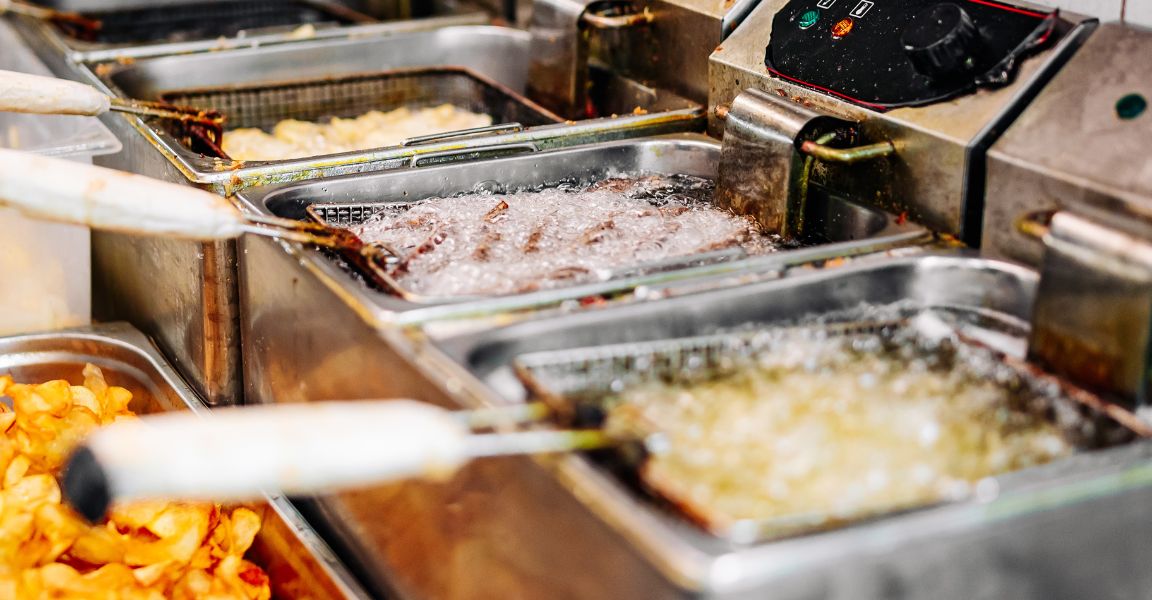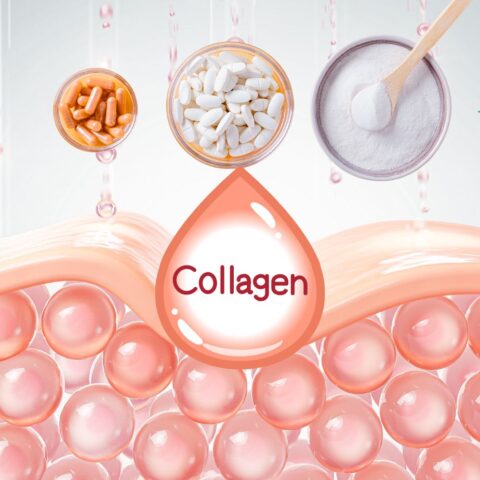Grease—it’s everywhere. It can end up on the counters, floor, and walls. In every nook and cranny of your commercial kitchen, you find traces of this slick, slimy substance.
Grease is a natural byproduct of cooking, but not a welcome one. It can contaminate food products, create trip hazards for employees, encourage vermin infestations, and increase the risk of fires. But it’s so common and so hard to clean. How do you keep it at bay? To help you maintain the cleanliness and safety of your commercial kitchen, we’ve compiled some tips for controlling grease. Try them out and see the difference they can make.
Ladle of Contents
Recycle Used Oil
Want to rid your kitchen of grease, make some extra bucks, and help out the environment in a three-in-one move? Consider saving used kitchen grease in containers and selling it to a recycling company. They can reuse it to produce animal feed, fertilizers, biodiesel, and other products.
Use Absorbent Floor Mats
While absorbent floor mats won’t eliminate grease from your commercial kitchen, they’ll contain its spread. This can help prevent slips, trips, and falls. Absorbent mats are typically polypropylene, a material that’s chemically resistant but also permeable. These qualities allow them to easily soak up and trap liquid contaminants like grease.
Our tip for using industrial absorbent mats is to remember to change them often. You don’t want to leave oil-soaked mats lying around. Eventually, they’ll become wet and slippery and act as breeding grounds for bacteria. But so long as you stick to a regular replacement schedule, they’re great for minimizing grease in your kitchen.
Don’t Pour Grease Down Drains
Grease starts in liquid form. But when left out and exposed to air, it turns hard. If your employees pour liquid grease down sinks and drains, it could solidify in the pipes or collect in the grease trap, eventually causing a blockage.
Instead of pouring grease down drains, your employees should dispose of it in a designated spot, ideally in a used cooking oil tank located outside of your establishment.
Clean Your Exhaust Filters
Your kitchen exhaust fan can suck in vaporized grease particles, which then become trapped in the filter. Grease-covered filters pose a massive fire hazard if exposed to enough heat.
What’s worse is that exhaust fans will expel grease particles outside. They stick to the exterior of the building, and when it rains, they wash off into nearby stormwater drains. If enough of these particles gather, they can back up the sewer system.
By regularly cleaning out your exhaust system, you can prevent grease buildup, mitigating the risk of fire and sewage issues.
Use these tips for controlling grease in a commercial kitchen to prevent various hazards. It takes lots of work to keep this substance under control. But with a bit of elbow grease and vigilance, you can keep it from posing a risk to your customers, employees, or establishment.








